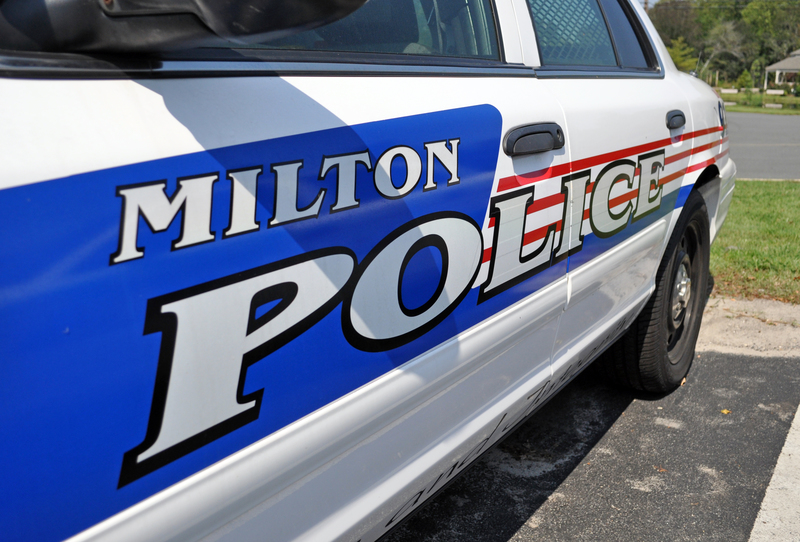A bill currently sitting in a Senate committee may have a significantly impact municipalities' police departments, and it has caught the attention of many local elected officials.
The Delaware Police Officers’ and Firefighters’ Employment Relations Act grants police officers and firefighters the right to organize and bargain collectively. To date, the act applies to public employers who have at least 25 employees.
If passed by the Senate, House Bill 81 would amend the requirement threshold to just three full-time employees. Many municipalities would be affected, including Dewey Beach, Milton, Fenwick Island, South Bethany and Dagsboro.
The bill was approved by the House 24-14 May 2. The legislation has no sponsors in Sussex County, but Rep. Steve Smyk, R-Milton, and House Speaker Pete Schwartzkopf, D-Rehoboth Beach, voted in favor of HB 81.
Smyk and Schwartzkopf are both former state troopers. Sussex County’s seven other representatives voted against the bill: John Atkins, D-Millsboro; Ruth Briggs King, R-Georgetown; Timothy Dukes, R-Laurel; Ronald Gray, R-Selbyville; Harvey Kenton, R-Milford; Daniel Short, R-Seaford; and Dave Wilson, R-Bridgeville, were against the bill.
Opponents of the bill say it would drain town funds. Supporters say HB 81 would level the playing field for similarly situated public employees.
HB 81 awaits a hearing in the Senate Labor and Industrial Relations Committee. If released from committee, the bill will face a final vote in the Senate.
Diane Hanson, president of Sussex County Association of Towns, said the association is against the bill, but she has not taken a position on the legislation.
Hanson, who is also mayor of Dewey Beach – which employs eight full-time officers – said Dewey Beach Town Council has not discussed HB 81. Dewey Beach Police Sgt. Cliff Dempsey is one of many municipal officers in favor of the bill.
He said his department compares its salaries with other towns once a year.
“The differences between the salaries started to be great,” he said. Dempsey said police in other municipalities, including Rehoboth Beach, were making far more than police in Dewey Beach.
He said he discovered why police in Dewey Beach police could not negotiate their salaries. Under current law, a municipality must have 25 full-time employees to unionize. “We do the same exact job as a police officer in Rehoboth, as a police officer in Georgetown,” Dempsey said. “We almost feel discriminated against.”
Dempsey said salaries are only part of the problem. “There were other administrative issues that made us think about unionizing,” he said.
Dempsey said he and handful of Sussex County municipal police officers contacted the Teamsters Union in the winter of 2012. “The Teamsters ran to the table with it and found a sponsor for the bill,” he said.
If the bill passes, Dempsey said, he does not plan to unionize immediately. He said he supports the legislation because it protects police all over the county. “It’s a fairness issue,” Dempsey said.
Dewey Beach Police received a 5 percent salary increase this year, he said. “We do not want to organize. The town’s working with us,” he said. “But the option will be there.”
Dempsey said some legal fees would be incurred by the change. “There has to be lawyers involved,” he said. “That’s almost besides the point,” he said. “We should be allowed to do this in the first place.”
Residents and municipal officials who oppose the bill have said it would allow police to deplete town funds. Dempsey said police do not want to bleed the town they work for. “If the town does not have something to give us, we can’t take it,” he said.
At Milton Town Council meeting June 3, concerned citizens and elected officials voiced their opposition because the town would likely see its legal fees increase by an estimated $30,000 in the first year.
“We're paying $800,000 for a municipal police department and if we have to spend $30,000 and be subject to a collective bargaining agreement, we might want to give some consideration to disbanding the police department,” said resident Lynn Ekelund. “If the state is going to tell us [we] must do this because we have more than three [officers], then I would be all for saying, 'OK, I pay my state taxes, you must protect me with state troopers.'”
Mayor Marion Jones is a full-time employee at the Rehoboth Beach Police Department, which has a larger staff and has already engaged in collective bargaining with the Teamsters. While she didn't offer her opinion on the process, she encouraged residents to call the city manager and police chief to hear their first-hand experience. She said it is not the town council's responsibility to take a position on the matter, but falls on the shoulders of each council person and resident to contact their representative.
“I encourage you to take action if you are so moved,” she said.
Vice Mayor John Booros is not in favor of HB81. After seeing a presentation on the bill at a recent Sussex County Association of Towns meeting, he said, it was clear the measure would only hurt Milton.
“What we heard at the meeting is that it's not giving [the police] a couple extra dollars a year that's going to break us, it's the bargaining agreement,” he said. “The lawyers for the bargaining agreement will put your town under when you're going against the Teamsters union because they will go after you with all the money and all the might, and we can't afford it.”

















































